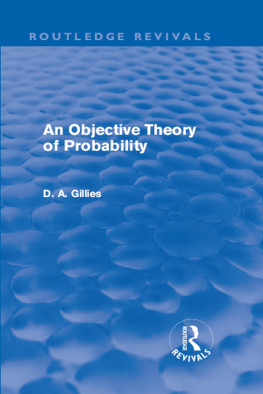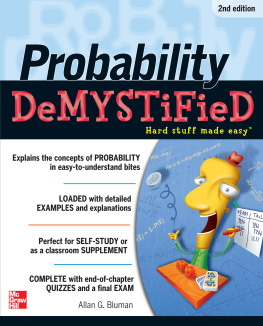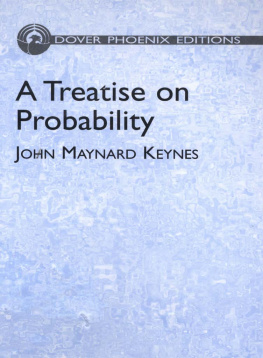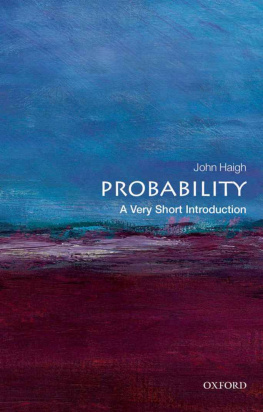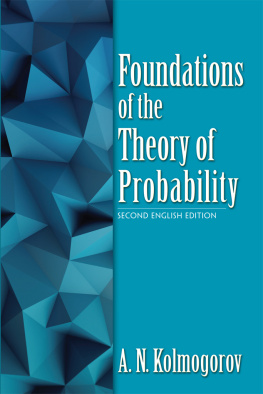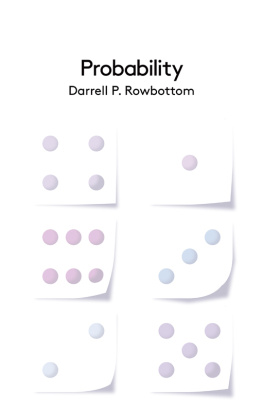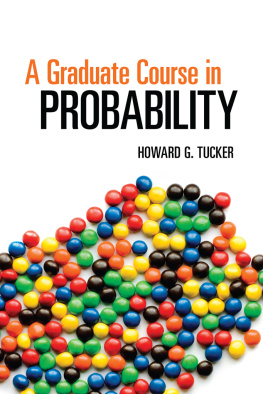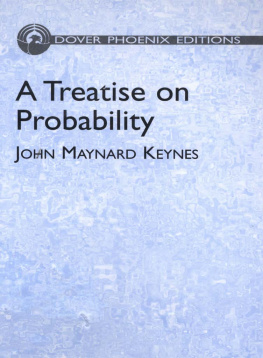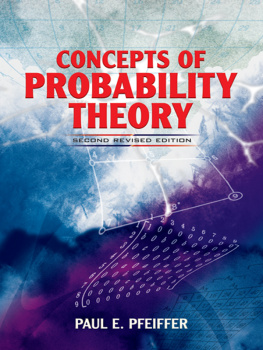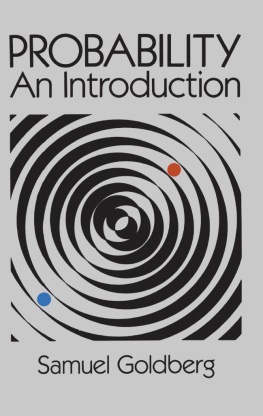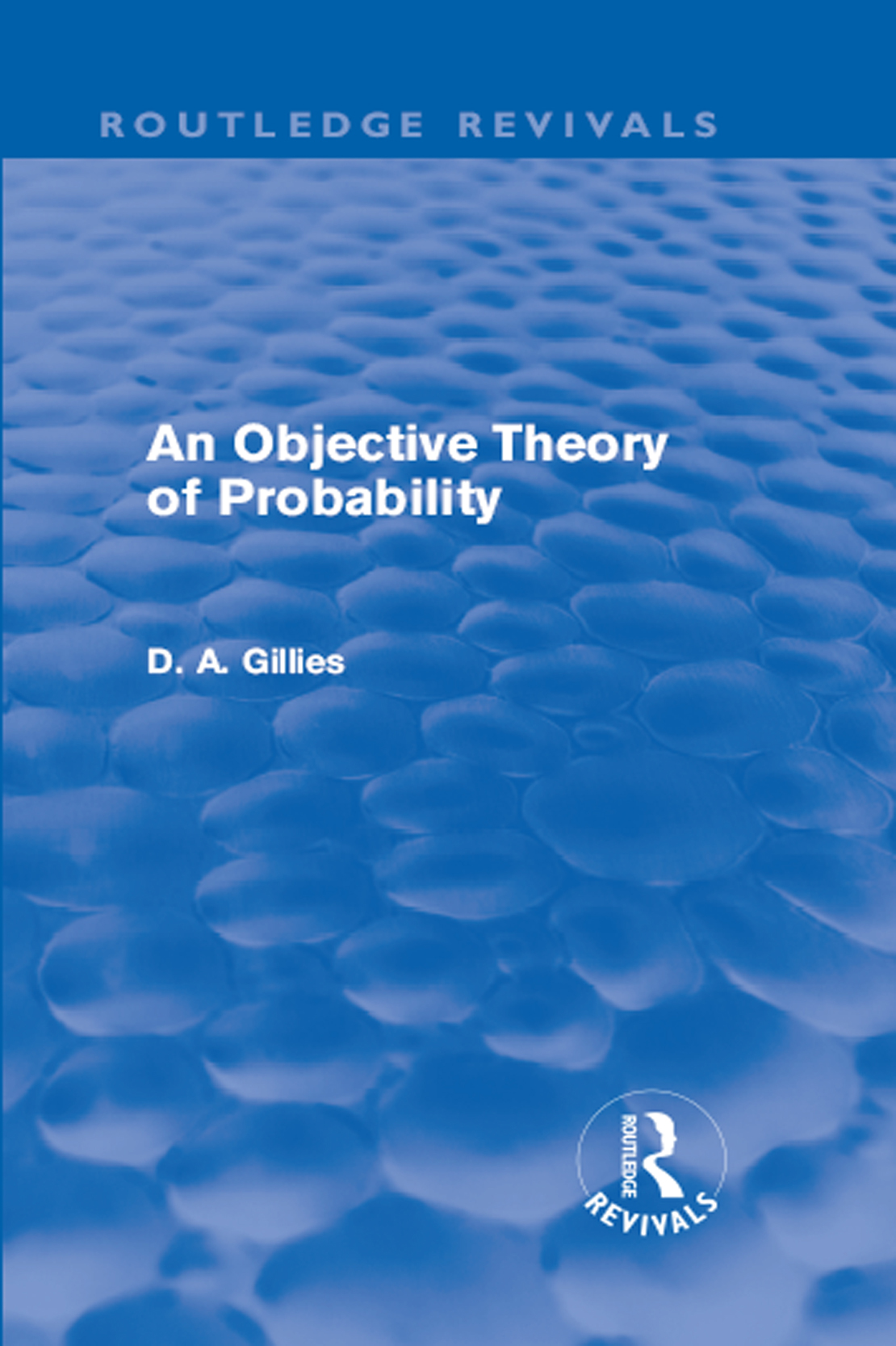Donald Gillies - An Objective Theory of Probability
Here you can read online Donald Gillies - An Objective Theory of Probability full text of the book (entire story) in english for free. Download pdf and epub, get meaning, cover and reviews about this ebook. year: 2010, publisher: Routledge, genre: Romance novel. Description of the work, (preface) as well as reviews are available. Best literature library LitArk.com created for fans of good reading and offers a wide selection of genres:
Romance novel
Science fiction
Adventure
Detective
Science
History
Home and family
Prose
Art
Politics
Computer
Non-fiction
Religion
Business
Children
Humor
Choose a favorite category and find really read worthwhile books. Enjoy immersion in the world of imagination, feel the emotions of the characters or learn something new for yourself, make an fascinating discovery.
- Book:An Objective Theory of Probability
- Author:
- Publisher:Routledge
- Genre:
- Year:2010
- Rating:5 / 5
- Favourites:Add to favourites
- Your mark:
An Objective Theory of Probability: summary, description and annotation
We offer to read an annotation, description, summary or preface (depends on what the author of the book "An Objective Theory of Probability" wrote himself). If you haven't found the necessary information about the book — write in the comments, we will try to find it.
This reissue of D. A. Gillies highly influential work, first published in 1973, is a philosophical theory of probability which seeks to develop von Mises views on the subject. In agreement with von Mises, the author regards probability theory as a mathematical science like mechanics or electrodynamics, and probability as an objective, measurable concept like force, mass or charge. On the other hand, Dr Gillies rejects von Mises definition of probability in terms of limiting frequency and claims that probability should be taken as a primitive or undefined term in accordance with modern axiomatic approaches.
This of course raises the problem of how the abstract calculus of probability should be connected with the actual world of experiments. It is suggested that this link should be established, not by a definition of probability, but by an application of Poppers concept of falsifiability. In addition to formulating his own interesting theory, Dr Gillies gives a detailed criticism of the generally accepted Neyman Pearson theory of testing, as well as of alternative philosophical approaches to probability theory. The reissue will be of interest both to philosophers with no previous knowledge of probability theory and to mathematicians interested in the foundations of probability theory and statistics.
Donald Gillies: author's other books
Who wrote An Objective Theory of Probability? Find out the surname, the name of the author of the book and a list of all author's works by series.

